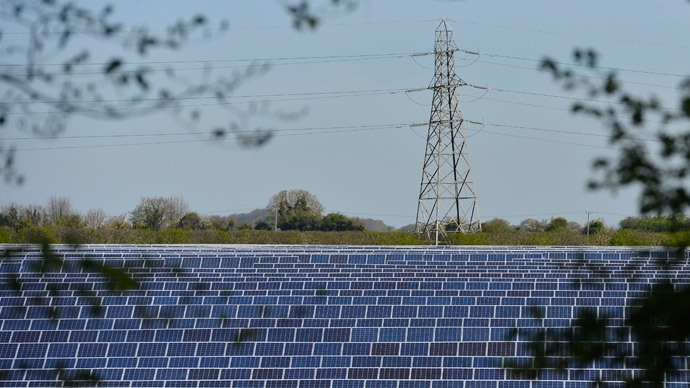The solar panels on over half a million buildings in the UK could be facing the wrong way, experts have said. New research has shown that the panels function more efficiently when they face east-west, while the majority of UK panels point south.
Britain’s leading experts on solar energy have challenged the conventional approach to the installation of solar panels. Current thinking says the panels should be installed facing south to get maximum exposure to the sun’s rays during the day.
However, Professor Ralph Gottshalg of Loughborough University is
now suggesting that thousands of people have misspent large sums
of money installing the panels facing the wrong way. Using the
example of Germany, which has over 1 million solar units,
Gottshalg argues that south-facing panels create most energy at
midday when most people are out.
Germany has since switched its policy and is now installing
east-west-facing panels to eliminate unnecessary energy spikes
and waste during the day.
Gottshalg says that westward and eastward facing panels would
produce the most power when the grid experiences peak demand.
“What we are saying that if you have the solar panels facing
east-west then you can even out the power during the day,”
Gottshalg told BBC Radio 4. “So in Germany they are advising
people to go east-west so they are smoothing out the supply of
power from all these solar panels.”
The UK currently has just over 500,000 solar units installed on
buildings around the country and the industry aims to increase
the number to over 10 million by 2020, producing 40 percent of
the country’s electricity needs.
“A quiet solar revolution has been taking place led by half a
million everyday households. Polls show over and over that the
public back renewables and they have indeed put their hands in
their pockets to prove it,” Leonie Greene, of the Solar
Trade Association, told BusinessGreen earlier this year.
Britain still lags far behind Germany, which has about 20
Gigawatts of solar panels. In the first six months of this year
alone solar panels contributed to around 7 percent of Germany’s
overall electricity needs. In addition, Germany managed to
generate over half of its electricity demand from solar panels
for the first time on June 9.
The German government is aiming to generate 100 percent of its
energy needs from renewable sources by 2050.


